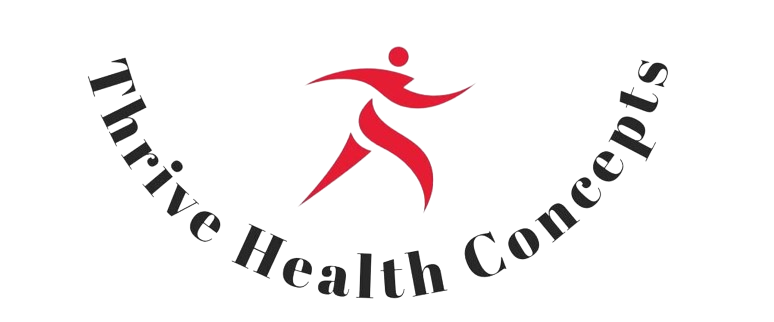Good nutrition is vital at every stage of life, but it becomes particularly crucial during perimenopause and menopause. During these phases, hormonal changes can significantly impact metabolism, bone density, and overall health. In this blog, we will explore the importance of good nutrition during perimenopause
and menopause and provide practical tips for weight loss, referencing insights from leading specialists and organisations.
The Role of Nutrition in Perimenopause and Menopause
As women transition through perimenopause and menopause, their bodies experience a decline in estrogen levels, which can lead to various health challenges. Dr. Louise Newson, a GP and Menopause Specialist, explains that “adequate nutrition can help manage symptoms, maintain bone health, and
reduce the risk of chronic diseases.” Dr. JoAnn Manson, Professor of Medicine at Harvard Medical School, adds that “a balanced diet rich in essential nutrients can alleviate menopausal symptoms and promote overall well-being.”
Key Nutrients for Perimenopausal and Menopausal Women
1. Calcium and Vitamin D
Essential for maintaining bone health and preventing osteoporosis. Dr. Rebecca Glaser, a hormone specialist, emphasises that “calcium and vitamin D are crucial for bone density, which can decline rapidly during menopause.”
2. Phytoestrogens
Found in soy products, flaxseeds, and legumes, phytoestrogens can help balance hormones naturally. Dr. Heather Currie, former Chair of the British Menopause Society, states that “phytoestrogens can mimic the effects of estrogen in the body and may help alleviate hot flushes.”
3. Omega-3 Fatty Acids
Important for heart health and reducing inflammation. Dr. Andrew Huberman, a neuroscientist at Stanford University, highlights that “omega-3s support cardiovascular health, which is particularly important as the risk of heart disease increases during menopause.”
4. Fibre
Helps with digestion and maintaining a healthy weight. Dr. Deirdre Conroy, a clinical psychologist, notes that “fibre-rich foods can improve digestive health and promote satiety, helping with weight management.”
5. Antioxidants
Found in fruits and vegetables, antioxidants can help combat oxidative stress and inflammation. Dr. Joann Manson recommends “a diet rich in colourful fruits and vegetables to boost antioxidant intake.”
Practical Tips for Weight Loss
1.Balanced Diet
Focus on a diet that includes a variety of whole foods, lean proteins, healthy fats, and plenty of fruits and vegetables. Dr. Louise Newson advises that “a balanced diet is key to maintaining a healthy weight and overall health.”
2.Portion Control
Be mindful of portion sizes to avoid overeating. Dr. Heather Currie suggests using smaller plates and paying attention to hunger cues.
3.Regular Physical Activity
Incorporate both aerobic exercises and strength training to boost metabolism and maintain muscle mass. Dr. Stacy T. Sims, an exercise physiologist, recommends “regular physical activity tailored to individual fitness levels to support weight loss and overall health.”
4.Hydration
Drink plenty of water throughout the day to stay hydrated and support metabolic processes. Dr. Andrew Huberman emphasises that “adequate hydration is essential for metabolic health and can help control appetite.”
5.Mindful Eating
Practice mindful eating by paying attention to what and when you eat. Avoid distractions during meals and savour each bite. Dr. Alice Domar highlights the benefits of “mindful eating in managing weight
and improving digestion.”
6.Sleep and Stress Management
Ensure you get enough sleep and manage stress effectively, as both can impact weight. Dr. Marina Johnson, an endocrinologist, advises “prioritising sleep and finding effective stress management techniques to support weight loss.”
Conclusion
Good nutrition and effective weight management strategies are essential during perimenopause and menopause. By incorporating key nutrients and adopting healthy lifestyle habits, women can improve their overall health and well-being. Specialists like Dr. Louise Newson, Dr. JoAnn Manson, and Dr. Andrew Huberman highlight the importance of a balanced diet, regular physical activity, and mindful eating.
For more information and guidance, consider resources such as Jean Hailes for Women’s Health, the North American Menopause Society (NAMS), and the Australasian Menopause Society.
References:
1.Newson, L. (n.d.). Newson Health Menopause & Wellbeing Centre.
2.Manson, J. (n.d.). Harvard Medical School.
3.Glaser, R. (n.d.). Bioidentical Hormone Therapy Research.
4.Currie, H. (n.d.). British Menopause Society.
5.Huberman, A. (n.d.). Stanford University.
6.Conroy, D. (n.d.). Clinical psychologist specialising in sleep disorders.
7.Sims, S. T. (n.d.). Exercise physiologist and nutrition scientist.
8.Domar, A. (n.d.). Domar Center for Mind/Body Health.
9.Johnson, M. (n.d.). “Outliving Your Ovaries.”
10.Jean Hailes for Women’s Health. (n.d.).
11.North American Menopause Society (NAMS). (n.d.).
12.Australasian Menopause Society. (n.d.).

